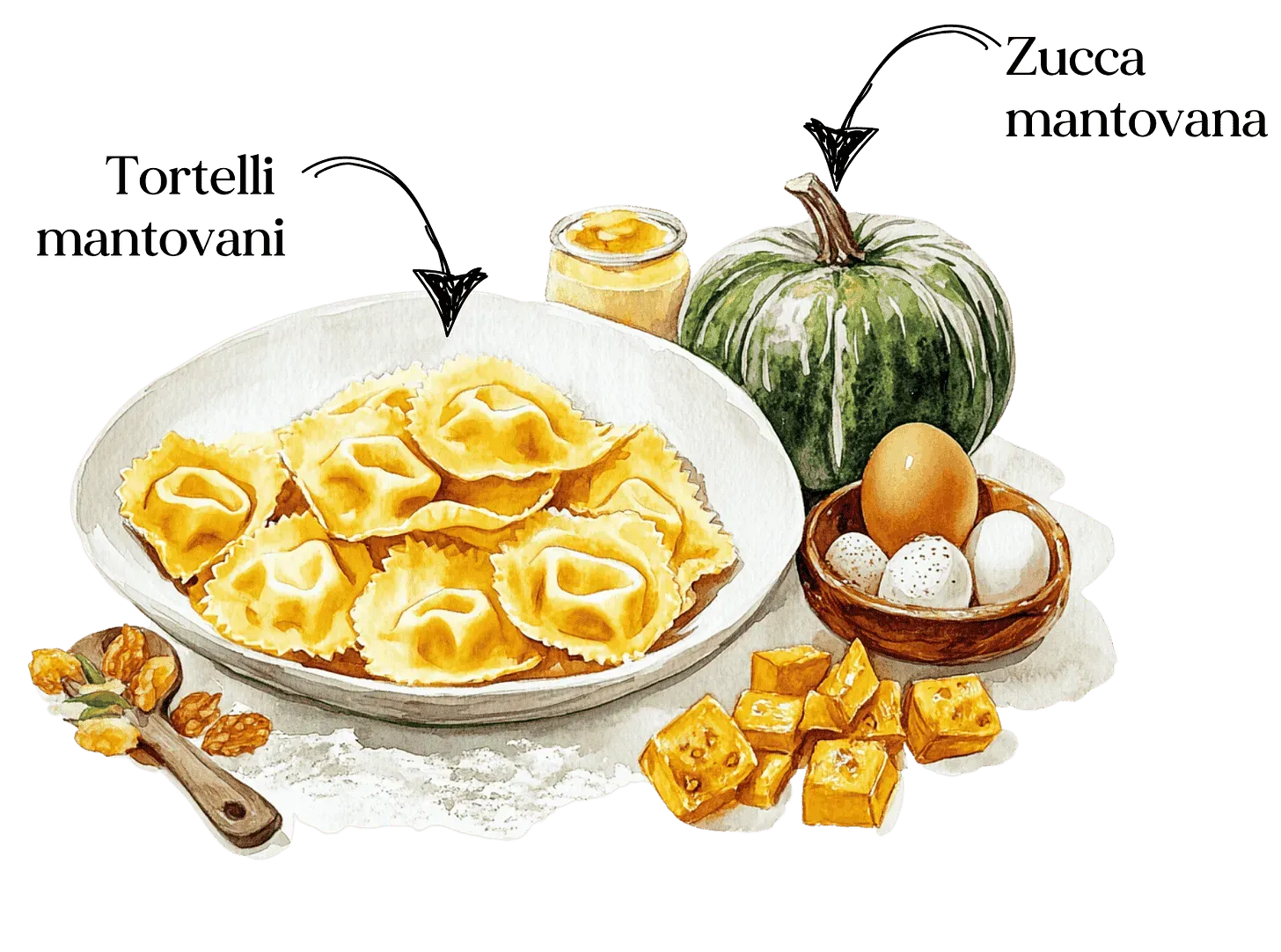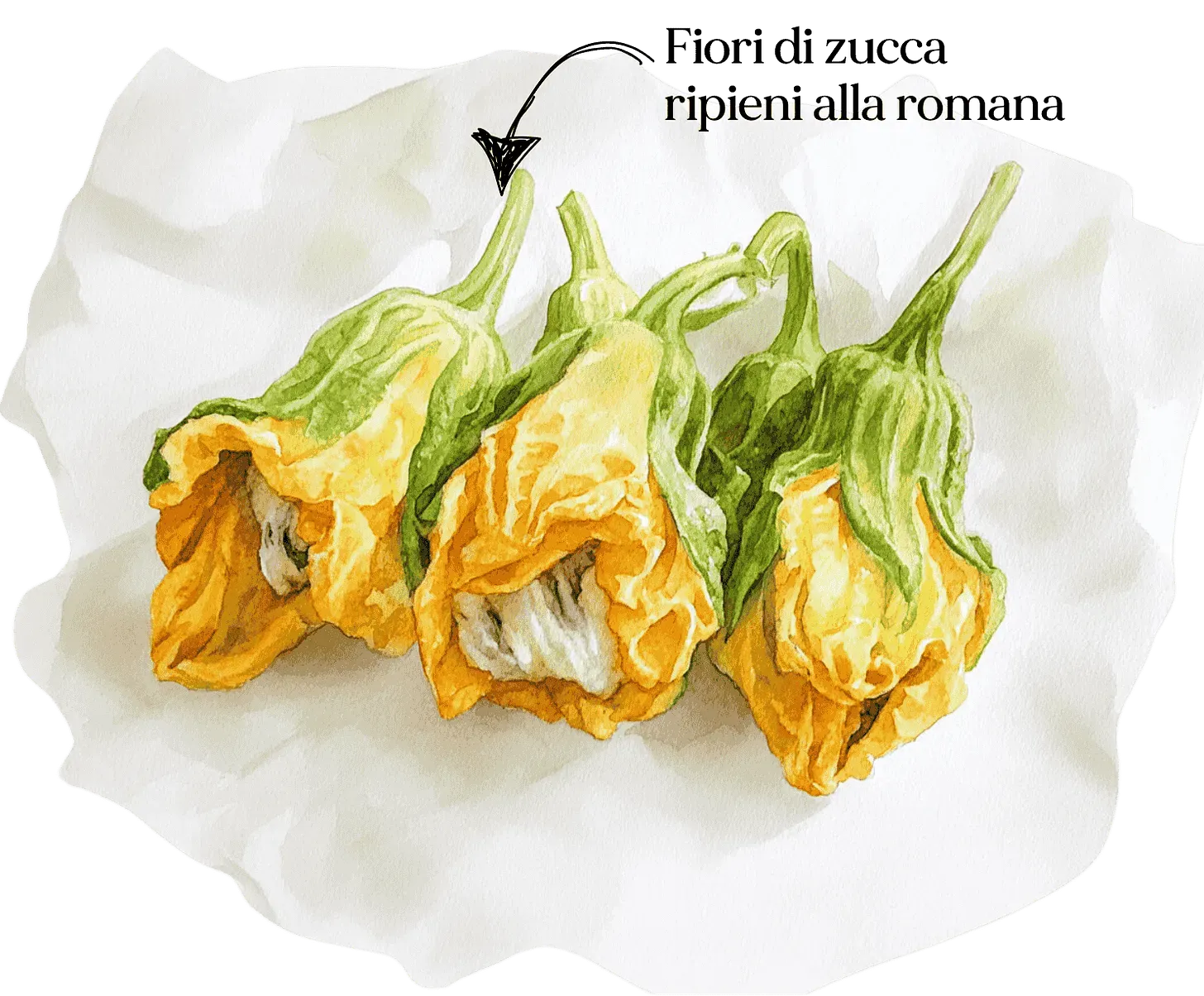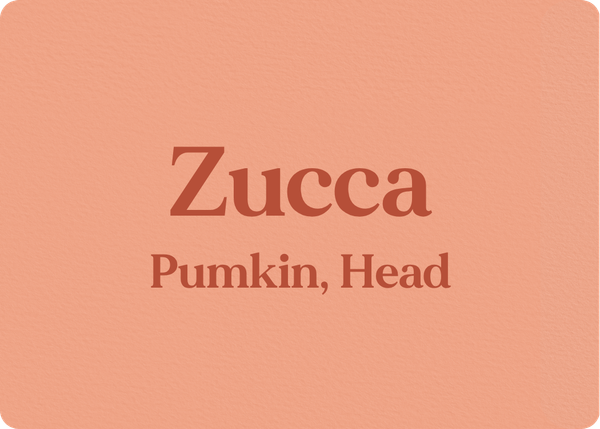Zucca
NOUN [feminine]
Meaning and English translation 🔖
Pumpkin, Squash
🇬🇧 Annual herbaceous plant of the Cucurbitaceae family, from whose fruits a vegetable is obtained.
🇮🇹 Pianta erbacea annuale della famiglia delle Cucurbitacee, dai cui frutti si ricava un ortaggio.
| Masculine ♂️ | Feminine ♀️ | |
|---|---|---|
| Singular | - | la - una zucca |
| Plural | - | le - delle zucche |
Example sentences 💬
La zucca è un ortaggio tipico dell'autunno.
Pumpkin is a typical autumn vegetable.
Ho comprato una zucca per fare i tortelli mantovani.
I bought a pumpkin to make Mantovan tortelli.

Quest'anno coltiverò le zucche nell'orto.
This year I'll grow pumpkins in the vegetable garden.
This article is brought to you by Giulia School, where you can learn Italian the natural way—with real conversations and passionate teachers guiding you every step of the journey. It’s the closest thing to immersion you can get without living in Italy. Click here to learn more.
Idioms with zucca 🇮🇹
Fiore di zucca
→ Pumpkin/Zucchini flower
I fiori di zucca fritti sono una specialità romana, ripieni di mozzarella e alici.
Fried zucchini flowers stuffed with mozzarella and anchovies are a Roman specialty.

Avere sale in zucca
→ To have common sense
Quel ragazzo ha sale in zucca, andrà lontano.
That boy has common sense, he'll go far.
Non avere sale in zucca
→ To lack common sense
Ha speso tutti i suoi risparmi in un giorno, proprio non ha sale in zucca!
He spent all his savings in one day, he really has no common sense!
Non gli entra in zucca
→ It won't enter one’s thick skull
Spieghiamo agli studenti come usare i pronomi combinati finché non gli entra in zucca.
We explain combined pronouns to students until it finally enters their thick skulls.
Zuccone/a
→ Stubborn person/Blockhead
È proprio una zuccona, non vuole mai ascoltare i consigli.
She's such a blockhead, she never wants to listen to advice.
Zuccata
→ Headbutt, hit on the head
Ho preso una zuccata contro l’angolo della finestra.
I hit my head against the corner of the window.
Where does the word zucca come from? 🔎
Zucca comes from the Late Latin cucutia, which shares its root with cucuzza, another dialectal name for this vegetable.
Did you know that... 🤓
Impress your italian friends with curious facts about Italy and its culture
Why do we say "avere sale in zucca" (to have salt in one's pumpkin)?
The expression "avere sale in zucca" (or "non avere sale in zucca") has very practical and ancient origins. In the past, before refrigerators, hollowed and dried pumpkins were used as containers to store various products, including salt. Salt was a precious commodity, so "having salt in your pumpkin" literally meant having something valuable in your pumpkin.
Over time, the expression took on a metaphorical meaning: just as salt gives flavor to food and preserves it, "salt in the pumpkin" represents the common sense, the wisdom that "flavors" our thoughts and helps us preserve judgment.
Even today, when we say someone "doesn't have salt in their pumpkin", we mean they lack common sense or judgment, just like an empty container-pumpkin without its precious salt.





